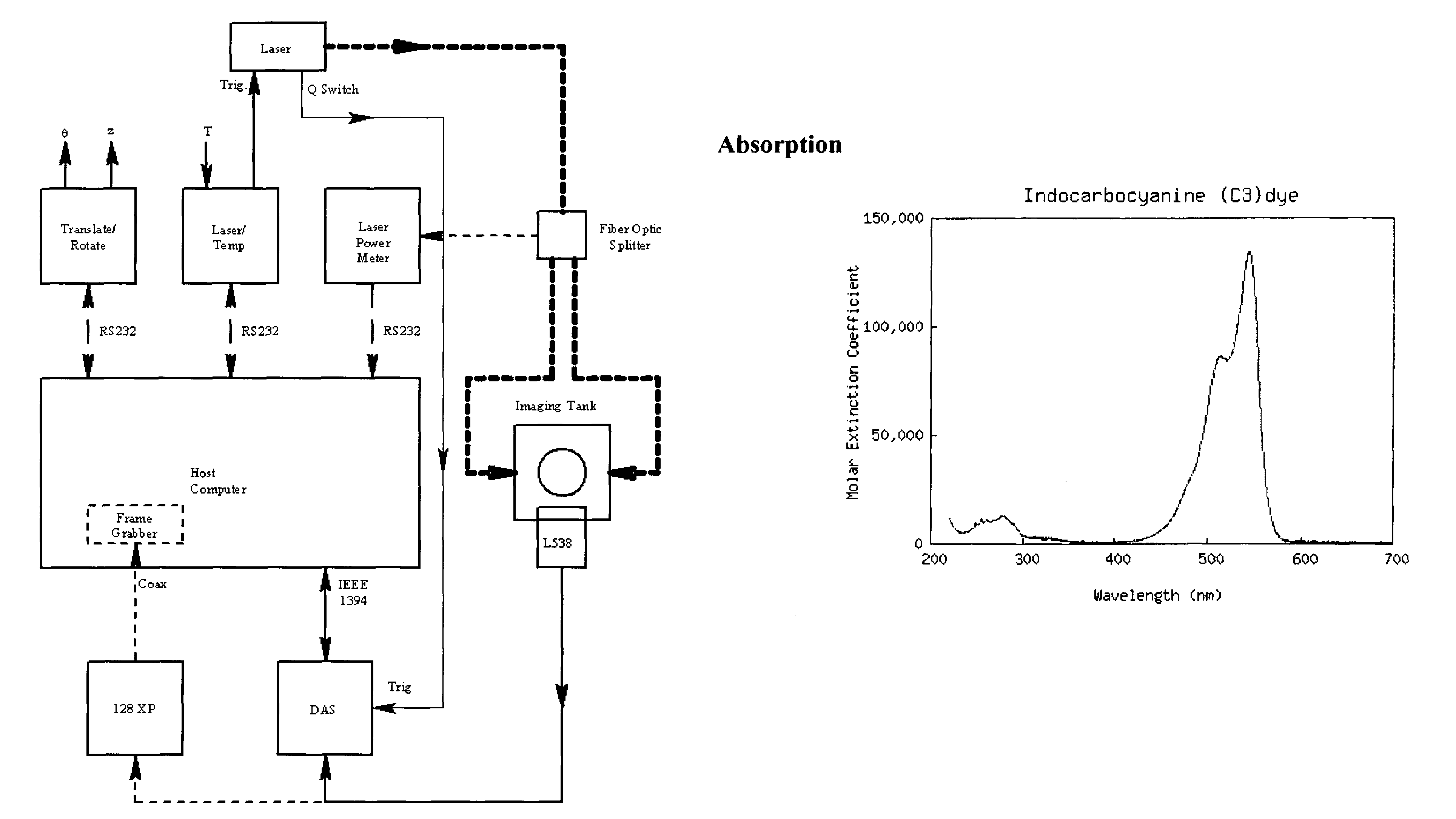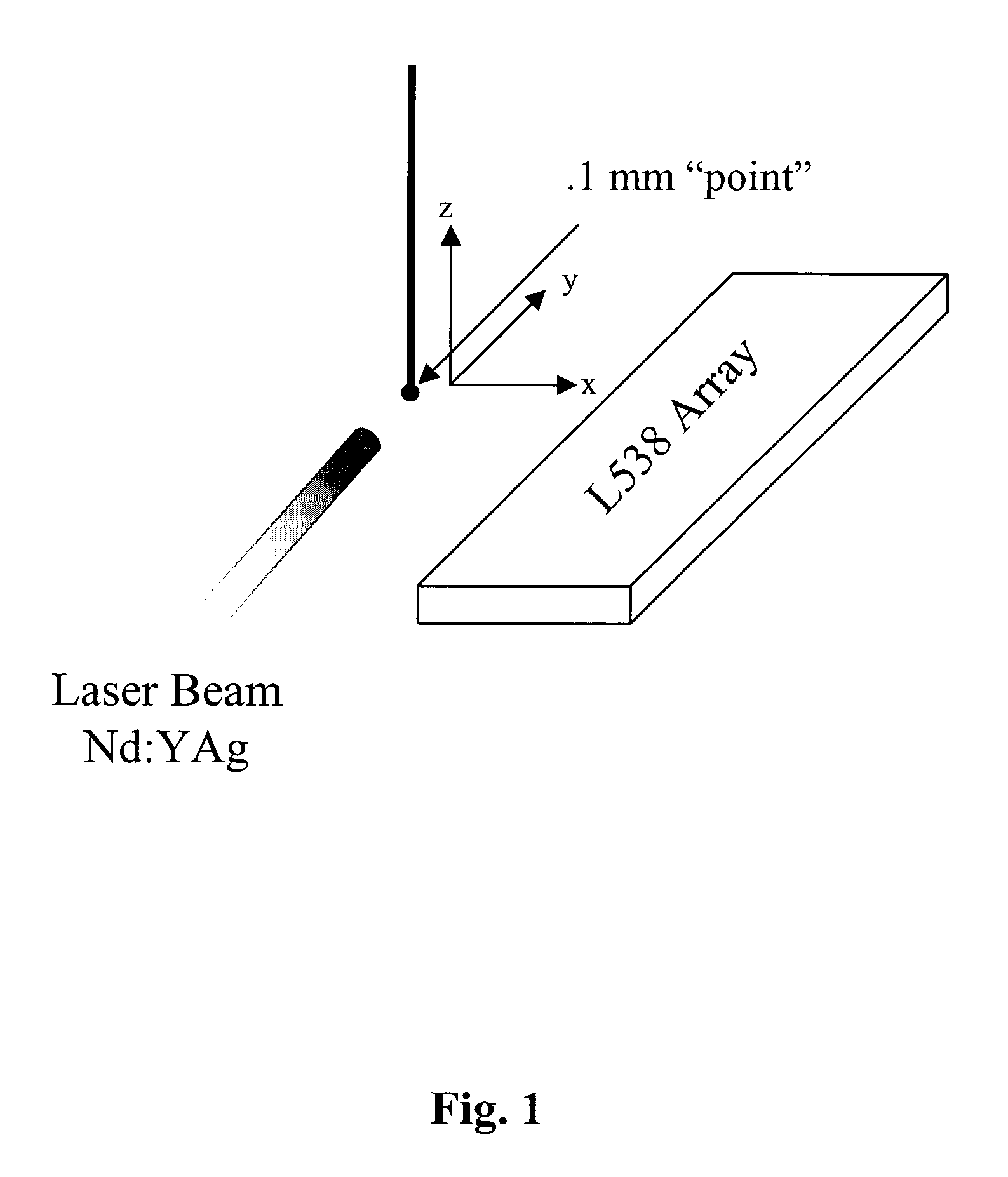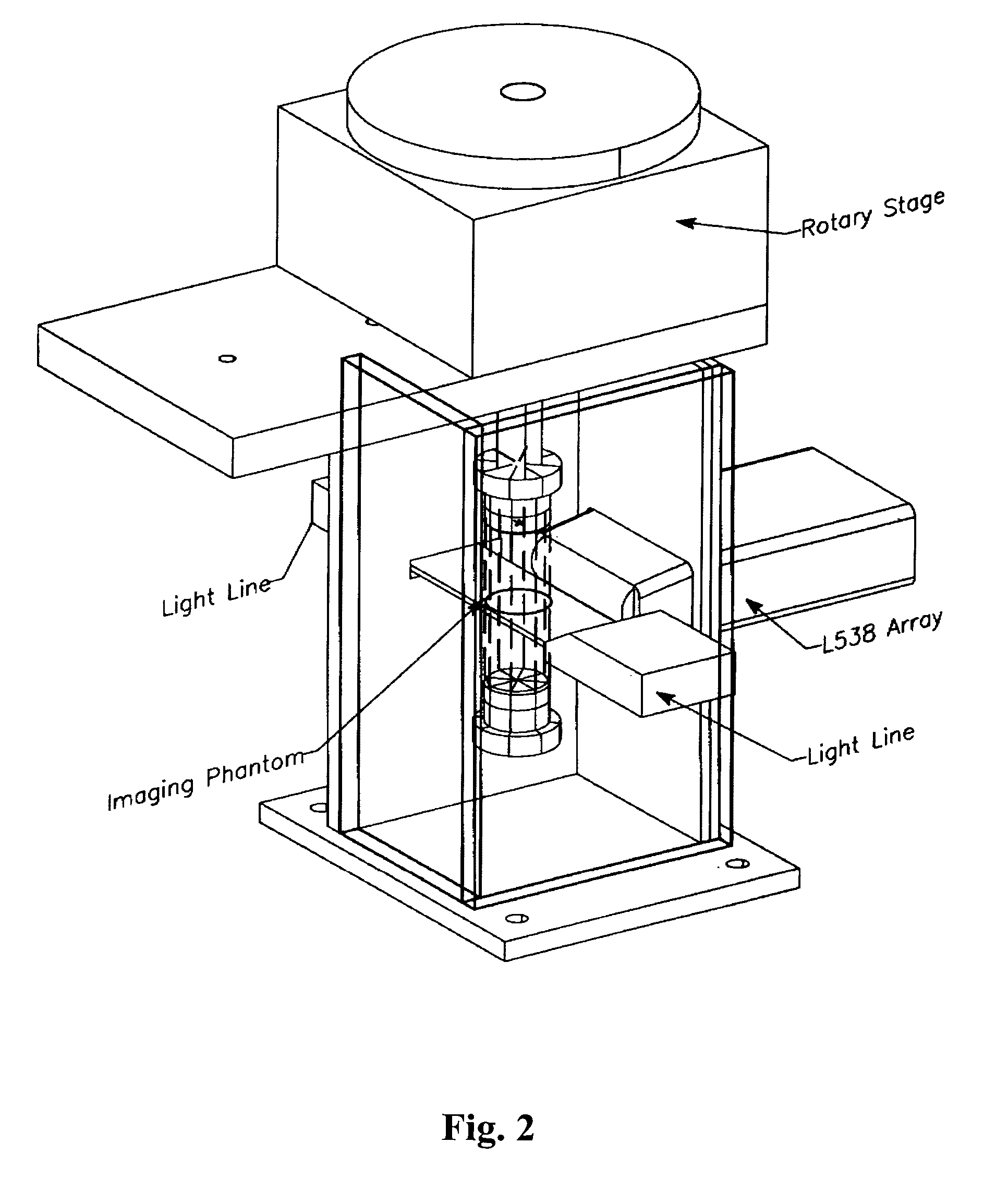Tissue scanner
a tissue scanner and scanner technology, applied in the field of tissue scanners, can solve the problems of increasing limitations in spatial resolution and fluorescence imaging in intact animals
- Summary
- Abstract
- Description
- Claims
- Application Information
AI Technical Summary
Benefits of technology
Problems solved by technology
Method used
Image
Examples
Embodiment Construction
[0024]FIG. 1 illustrates a commercial, linear array 8 arranged for testing as a photoacoustic detector (specifically, Model No. L538, available from Acuson, Mountain View, Calif.). This array comprises 128 elements spanning 38 mm. The elements have a nominal central frequency of 5 MHz, and are spaced 0.3 mm apart. Each element is nominally 6-mm high, with a thin acoustic lens that produced a geometric focus approximately 15 mm in front of the array.
[0025]The slice-width profile of this array was measured normal to the imaging plane, from the axial response of the array to a photoacoustic “point” source 9, as illustrated in FIG. 1. The thermoacoustic “point” was fabricated by painting a small “dot” of black paint on the end of a 0.10-mm diameter, polyethylene thread. The thread was mounted on a two-axis positioner and pulsed with light from a Nd:YAg laser, which produced an approximately 6 ns pulse of 1064 nm infrared radiation. The position of the point source was slowly varied with...
PUM
 Login to View More
Login to View More Abstract
Description
Claims
Application Information
 Login to View More
Login to View More - R&D
- Intellectual Property
- Life Sciences
- Materials
- Tech Scout
- Unparalleled Data Quality
- Higher Quality Content
- 60% Fewer Hallucinations
Browse by: Latest US Patents, China's latest patents, Technical Efficacy Thesaurus, Application Domain, Technology Topic, Popular Technical Reports.
© 2025 PatSnap. All rights reserved.Legal|Privacy policy|Modern Slavery Act Transparency Statement|Sitemap|About US| Contact US: help@patsnap.com



